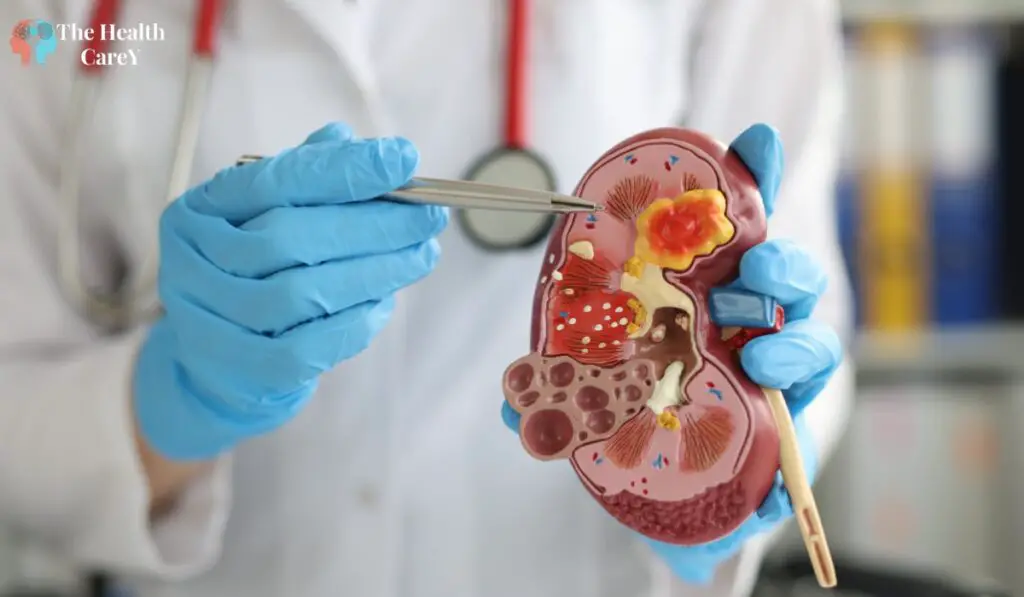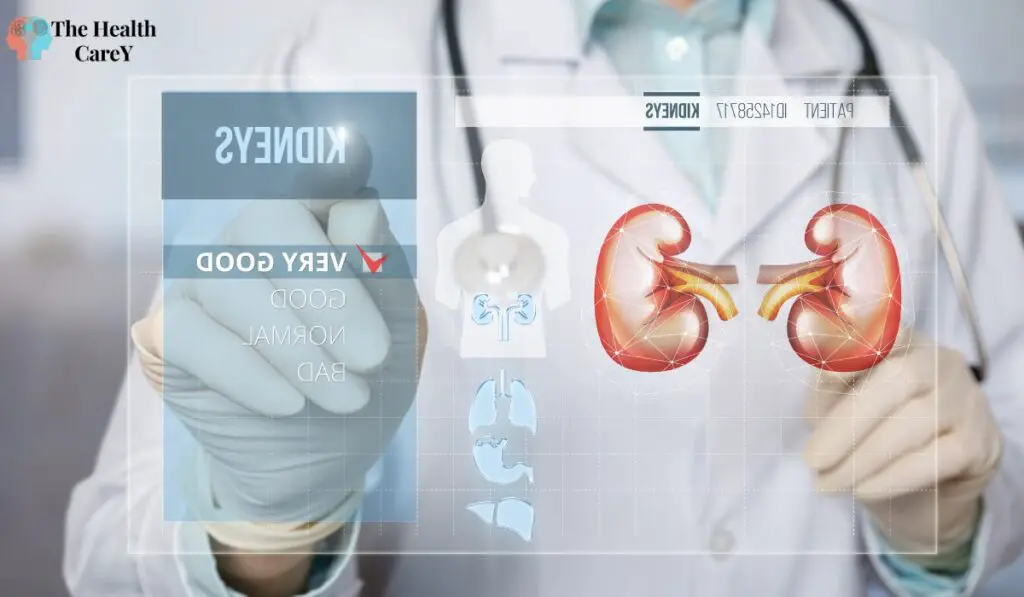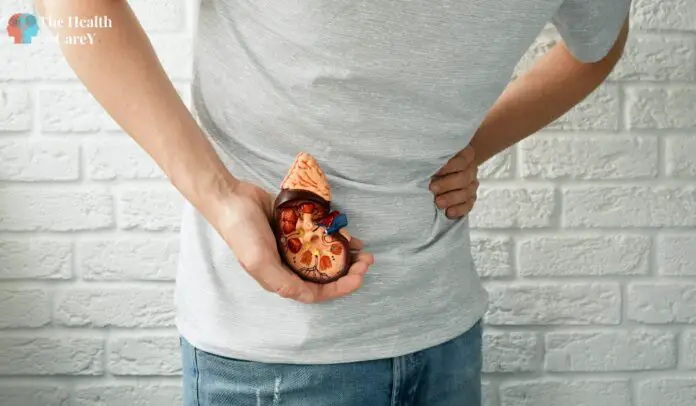Kidney stones are a common condition that affects millions of people worldwide. You must wondering Can Kidney Stones Kill You? While they are often painful and uncomfortable, most cases of kidney stones can be treated with medication or other non-invasive methods. However, many people wonder if kidney stones can be fatal. In this article, we will explore whether kidney stones kill you.
The short answer is that, in most cases, kidney stones are not life-threatening. While they can cause significant discomfort and pain, they typically do not cause severe long-term damage to your health.
However, there are some rare cases where kidney stones can lead to severe complications that can be fatal if left untreated. In the following paragraphs, we will explore some potential risks associated with kidney stones and what you can do to prevent them.
Understanding Kidney Stones
What are Kidney Stones?
Kidney stones are hard deposits of minerals and salts inside your kidneys. They can vary in size and shape, ranging from a grain of sand to a golf ball. Kidney stones can cause severe pain and discomfort, and in some cases, they can lead to serious health complications.
Kidney stones are more common in men than women and tend to occur in people between the ages of 30 and 60. Some people may be more prone to developing kidney stones due to certain medical conditions, such as gout or urinary tract infections, or a family history of kidney stones.
Causes of Kidney Stones
Kidney stones can form when there is an imbalance of minerals and salts in your urine. This can happen when your urine contains high levels of calcium, oxalate, or uric acid or is too concentrated. Other factors that can increase your risk of developing kidney stones include:
- Dehydration: Not drinking enough water can lead to concentrated urine, which can increase your risk of developing kidney stones.
- Diet: Eating a diet high in salt, sugar, and animal protein can increase your risk of developing kidney stones.
- Obesity: Being overweight or obese can increase your risk of developing kidney stones.
- Medical conditions: Certain medical conditions, such as gout, hyperparathyroidism, and urinary tract infections, can increase your risk of developing kidney stones.
An underlying medical condition like cystinuria or primary hyperoxaluria may sometimes cause kidney stones. These conditions can cause your body to produce too much of certain substances that can lead to the formation of kidney stones but Can Kidney Stones Kill You?
Understanding the causes of kidney stones can help you take steps to prevent them from forming in the first place. Drinking plenty of water, maintaining a healthy diet, and managing any underlying medical conditions can all help reduce your risk of developing kidney stones.
Can Kidney Stones Kill You?
Kidney stones can be a painful and uncomfortable experience. But Can Kidney Stones Kill You? The short answer is no; kidney stones themselves are not fatal. However, in rare cases, complications caused by kidney stones can lead to life-threatening conditions.
One of the most severe complications of kidney stones is an infection that can occur when a stone blocks the urinary tract. This can lead to a buildup of bacteria in the urinary tract, which can cause a severe infection called sepsis. Sepsis can be life-threatening if left untreated, as it can cause organ failure and even death.
Another potential complication of kidney stones is kidney damage. If a stone blocks the flow of urine for an extended period of time, it can cause damage to the kidney tissue. This can lead to chronic kidney disease, eventually leading to kidney failure.
It’s important to note that while kidney stones are not fatal, they can be a sign of an underlying health condition that may require medical attention. If you experience severe pain in your back or side, blood in your urine, or difficulty urinating, you must see a doctor as soon as possible.
In summary, while kidney stones are not fatal, they can lead to severe complications that can be life-threatening if left untreated. If you think you may have kidney stones, it’s essential to seek medical attention to prevent any potential complications.

Complications of Kidney Stones
If left untreated, kidney stones can lead to several complications that can be life-threatening. This section will discuss some of the most common complications of kidney stones.
Urinary Tract Infections
Urinary tract infections (UTIs) are a common complication of kidney stones. When a stone blocks the urinary tract, it can cause urine to back up into the kidneys, leading to an infection. Symptoms of a UTI include:
- Pain or burning during urination.
- Frequent urination.
- Cloudy or foul-smelling urine.
If left untreated, a UTI can spread to the kidneys and cause a more serious infection. This can lead to fever, chills, nausea, and vomiting. In severe cases, a kidney infection can cause sepsis, which is a life-threatening condition.
Kidney Damage
Prolonged kidney stones can damage the kidneys, even without any significant symptoms. If a stone blocks the urinary tract for an extended period, it can cause urine to back into the kidneys, leading to swelling and damage. This can cause permanent kidney damage and require dialysis or a kidney transplant.
Sepsis
Sepsis is a life-threatening complication that can occur when an infection spreads throughout the body. Kidney stones can cause sepsis if they lead to a kidney infection that is left untreated. Symptoms of sepsis include fever, chills, rapid breathing, rapid heart rate, and confusion. If you experience any of these symptoms, seek medical attention immediately.
In conclusion, kidney stones can lead to several complications that can be life-threatening if left untreated. If you experience symptoms of kidney stones or any of their complications, seek medical attention immediately.
Symptoms of Kidney Stones
If you have kidney stones, you may experience a range of symptoms that can be painful. Here are some of the most common symptoms:
- Severe pain in your side, back, or lower abdomen that can come and go in waves
- Pain or burning sensation while urinating
- Blood in your urine
- Cloudy or foul-smelling urine
- Nausea and vomiting
- Painful urination
- Frequent urination
- Difficulty urinating
- Fever and chills if an infection is present
The pain associated with kidney stones can be excruciating and may change in intensity as the stone moves through your urinary tract. You may also experience pain in your groin area, testicles, or vulva. The pain may be accompanied by nausea and vomiting, making it challenging to keep food down.
If you notice any of these symptoms, you must see a doctor immediately. Your doctor can perform tests to determine if you have kidney stones and recommend appropriate treatment options.
It’s worth noting that not everyone with kidney stones will experience symptoms. Some people may have small kidney stones that pass through their system without causing any discomfort. However, suppose you have a history of kidney stones or are at risk of developing them. In that case, it’s essential to be aware of the potential symptoms so you can seek medical attention if necessary.
Diagnosis and Treatment of Kidney Stones
Diagnosis Methods
If you suspect you have a kidney stone, your doctor will perform a physical exam and ask about your symptoms. They may also order imaging tests such as an X-ray, CT scan, or ultrasound to confirm the diagnosis. Blood and urine tests may also be performed to check for signs of infection or other conditions that could be causing your symptoms.
Treatment Options
The treatment for kidney stones depends on the size and location of the stone and the severity of your symptoms. Sometimes, tiny stones may pass on their own with plenty of fluids and pain medication.
For larger stones, your doctor may recommend one of the following treatments:
- Extracorporeal shock wave lithotripsy (ESWL): This procedure uses shock waves to break up the stone into smaller pieces that can be passed into your urine.
- Ureteroscopy: A thin, flexible scope is passed through your urethra and bladder to the ureter, where the stone is located. The stone is then removed or broken up with a laser.
- Percutaneous nephrolithotomy: A small incision is made in your back to access the kidney, and the stone is removed or broken up with a laser.
- Open surgery: This is rarely needed but may be necessary for very large or complex stones.
Your doctor may also recommend medications to help prevent future kidney stones, such as thiazide diuretics or allopurinol.
Drinking plenty of fluids is essential to help flush out the stone and prevent future stones from forming. Your doctor may recommend drinking as much as 2 to 3 quarts daily. Pain medication may also be prescribed to help manage your symptoms.
If you experience severe pain, fever, or difficulty passing urine, seek medical attention immediately. Kidney stones can be a severe condition, but with prompt diagnosis and treatment, most people can recover without complications.

Prevention of Kidney Stones
Kidney stones can be painful and uncomfortable, but you can take steps to prevent them from forming. Here are some tips to help you prevent kidney stones:
- Stay hydrated: Drinking plenty of water is the best way to prevent kidney stones. Aim to drink at least 8-10 glasses of water per day. If you live in a hot climate or exercise frequently, you may need to drink more water to stay hydrated.
- Limit your intake of certain foods: Some foods can increase your risk of developing kidney stones. These include foods high in oxalates, such as spinach, rhubarb, and chocolate. You should also limit your animal protein intake, as it can increase the amount of calcium and uric acid in your urine.
- Getting enough calcium: Contrary to popular belief, getting enough calcium in your diet can help prevent kidney stones. Calcium binds with oxalates in your digestive tract, preventing them from being absorbed into your bloodstream and excreted in your urine.
- Avoid certain medications: Some medications, such as diuretics and antacids, can increase your risk of developing kidney stones. Talk to your doctor about alternative treatments if you are taking these medications.
- Maintain a healthy weight: Being overweight or obese can increase your risk of developing kidney stones. If you are overweight, losing weight can help reduce your risk.
By following these tips, you can help prevent kidney stones from forming and avoid the pain and discomfort they can cause.Can Kidney Stones Kill You? If you are worried about it and If you have a history of kidney stones or are at a higher risk for developing them, talk to your doctor about additional steps, you can take to prevent them.
Frequently Asked Questions
What are the potential complications of kidney stones?
Kidney stones can cause a range of complications, including severe pain, infection, and blockage of the urinary tract. In some cases, kidney stones can also lead to kidney damage and loss of kidney function.
How can kidney stones be treated?
Treatment for kidney stones depends on the size and location of the stone and the severity of symptoms. In some cases, small stones may pass on their own with the help of pain medication and increased fluid intake. Larger stones may require medical intervention, such as lithotripsy or surgical removal.
What are some common symptoms of kidney stones?
Common symptoms of kidney stones include severe pain in the back, side, or lower abdomen, nausea and vomiting, and blood in the urine. Some people may also experience fever and chills.
What are the risk factors for developing kidney stones?
Risk factors for kidney stones include a family history of the condition, dehydration, a diet high in salt and protein, and certain medical conditions such as gout and inflammatory bowel disease.
Can kidney stones lead to kidney damage?
Kidney stones can sometimes lead to kidney damage and loss of kidney function. This is more likely to occur if the stone causes a blockage in the urinary tract or if an underlying medical condition affects kidney function.
Is surgery always necessary to treat kidney stones?
Surgery is not always necessary to treat kidney stones. In many cases, small stones can be passed on their own with the help of pain medication and increased fluid intake. However, larger stones or stones that cause severe symptoms may require medical intervention, such as lithotripsy or surgical removal. If you wondering Can Kidney Stones Kill You then our answer is NO.
Also Read:
Smokers Face Before and After Quitting






















